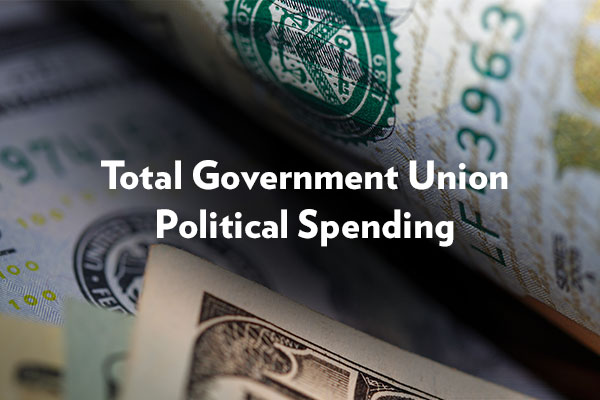Media

Who Benefits from Union Political Spending?
From teachers’ strikes to the significant U.S. Supreme Court case Janus v. AFSCME, government unions catapulted into the national spotlight this year. Yet union direct political engagement has remained strong for years, at a significant cost to union members and taxpayers.
Here’s how.
Pennsylvania public sector employees, such as teachers and state and local government workers, can direct a portion of their paycheck to political candidates and elected officials through union political action committee (PAC) contributions.
The recipients of union PAC contributions collected over $53 million since 2010—and nearly all of the candidates ran as Democrats. The top recipient: Gov. Tom Wolf, who has taken $9.8 million from public sector union PACs since 2014, plus an additional $800,000 in independent expenditures spent on his behalf.
(Union PAC Donations to Gov. Wolf)
Union dues are also used to bolster candidates indirectly. According to their own reports, Pennsylvania’s top government unions spent $69 million of members’ dues on “political activities and lobbying” since 2007. These independent political expenditures don’t go directly to candidates, but are spent advocating for politicians or political issues.
(Union Political Spending 2007-18)
Public sector union members can choose not to contribute to their union PAC. Given constant union misdirection, however, members may not know their dues also support politicians and harmful public policy stances, such as fighting reforms of Pennsylvania's broken pension system and struggling prohibition-era liquor system.
If members object to funding this political activity, they can resign from the union without paying a fair share fee, thanks to Janus, but only if they file the right paperwork at the right time—typically a small two-week window every few years.
Members deserve to know where their dues go and the partisan platforms their leaders endorse. Likewise, Pennsylvania citizens should also know their taxes are used to collect campaign money.
Luckily, reforms such as Paycheck Protection would stop public resources from bankrolling the collection of PAC dollars. Further, a slew of other reforms, such as HB 2571, would give union members more autonomy and louder voices in their unions.